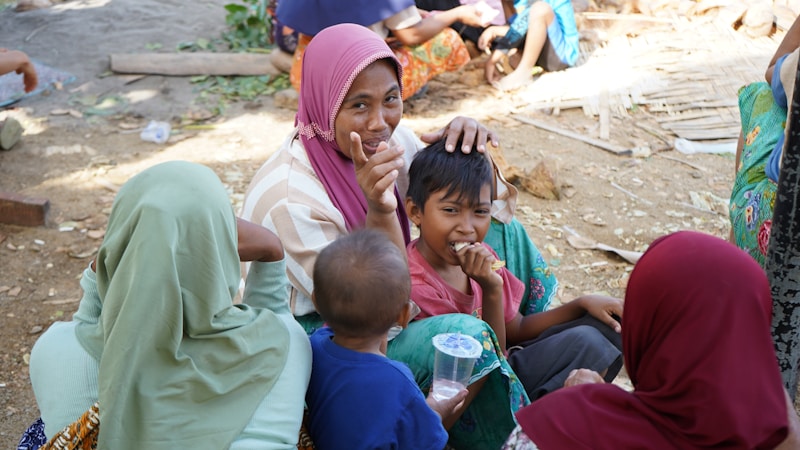Exploring the Elements of Cultural Identity in Weddings
Weddings are not merely events that celebrate the union of two people; they are also rich tapestries woven from threads of cultural heritage. Each tradition, ritual, and symbolism within a wedding carries deep meanings that reflect personal and shared identities. Understanding the elements of cultural identity in weddings offers insights into a community's values and beliefs, while also providing a unique perspective for couples planning their own ceremonies.
Understanding Cultural Identity
Cultural identity refers to the sense of belonging to a particular group characterized by shared traditions, customs, and social norms. In weddings, these elements are manifest in various ways, including attire, rituals, and even the venues chosen for the ceremonies. The blend of cultural practices not only celebrates individual backgrounds but also fosters a deeper connection among diverse communities.
Key Elements of Cultural Identity in Weddings
| Element | Description |
| Traditional Attire | Garments that reflect cultural heritage, symbols of pride and collective identity. |
| Rituals and Customs | Specific practices, such as ceremonies, dances, or blessings that convey cultural significance. |
| Food and Cuisine | Culinary traditions that showcase local flavors and family recipes, often holding significant remembrance value. |
| Music and Dance | Art forms that express joy and cultural narratives, often performed during key moments of the celebration. |
| Venue Choice | Locations that possess cultural or historical significance for the couple or their families. |
1. Traditional Attire
Attire plays an important role in expressing cultural identity during weddings. In Indian weddings, brides often wear vibrant sarees or lehengas, adorned with intricate embroidery, symbolizing prosperity and fertility. On the other hand, in Western cultures, a white wedding dress often denotes purity and new beginnings, demonstrating the varying significances attached to wedding attire. Each detail, from fabric choice to design, can reflect deep cultural roots and familial legacies.
2. Rituals and Customs
Rituals and customs are the heart and soul of wedding celebrations. In African weddings, for instance, the unity ceremony, which symbolizes the blending of two families, highlights the importance of community in the marriage. Conversely, a traditional Chinese wedding often includes a tea ceremony, where the couple serves tea to their elders as a sign of respect and gratitude. These practices carry profound meanings and maintain cultural continuities, acting as a bridge connecting generations.
3. Food and Cuisine
Food is another crucial element that embodies cultural identity in weddings. Each wedding feast showcases the culinary heritage of the families involved. Mediterranean weddings may feature a variety of mezze and roasted lamb, representing hospitality and community, while Hispanic weddings often include tamales and salsa, evoking family traditions and flavors. The shared experience of food during a wedding allows families and friends to bond over familiar tastes, resulting in joyous memories that will be cherished for years to come.
4. Music and Dance
Weddings are a time for celebration, and music and dance play a pivotal role in expressing joy. In Jewish weddings, the Hora dance, where guests lift the couple in chairs, symbolizes community support and joy. Similarly, in Indian weddings, the Bhangra dance allows everyone to partake in the merriment, celebrating the couple's new union. The songs chosen often speak volumes about cultural narratives and personal stories, making every moment memorable.
5. Venue Choice
The choice of venue can also reflect cultural identity. Many couples opt for locations that hold significance for their families or cultural backgrounds. For example, a traditional cathedral might be selected for a Christian ceremony, while a picturesque garden might be chosen for a Hindu wedding that includes outdoor rituals. The location not only sets the scene but also encapsulates the couple’s cultural narrative, establishing a meaningful backdrop for their marriage.

Integration of Cultures in Modern Weddings
In an increasingly globalized world, many couples find themselves blending different cultural elements into their weddings. This fusion of traditions not only reflects diverse backgrounds but also allows for unique personal expressions. For instance, a couple might integrate a traditional African drum circle with a Western-style reception, creating a multicultural atmosphere that resonates with all guests. Embracing such harmony fosters inclusivity and celebrates the beautiful diversity of cultural identities.
Challenges and Considerations
While blending cultures can be a joyful endeavor, it is important to approach it with sensitivity and respect. Understanding the significance behind each cultural element is essential to honor traditions effectively. Couples should communicate openly with family members about their preferences, ensuring that all parties feel represented and included in the ceremony. Cultural appropriation is a serious concern, and couples must be mindful to adopt traditions thoughtfully, fostering mutual respect and understanding.
Conclusion and Recommendations
In conclusion, the elements of cultural identity in weddings are not just mere formalities; they encapsulate the rich histories, values, and beliefs of the individuals involved. From attire and rituals to food and music, each aspect serves to strengthen the bonds of family and culture. Couples planning their wedding should consider the significance of these elements, thoughtfully integrating traditions that resonate with their personal and familial identities.
By approaching their wedding with an appreciation for cultural heritage, couples can create a meaningful celebration that honors their backgrounds while also welcoming their future together. Remember, your wedding is a reflection of who you are; make it a tapestry of love, respect, and celebration.